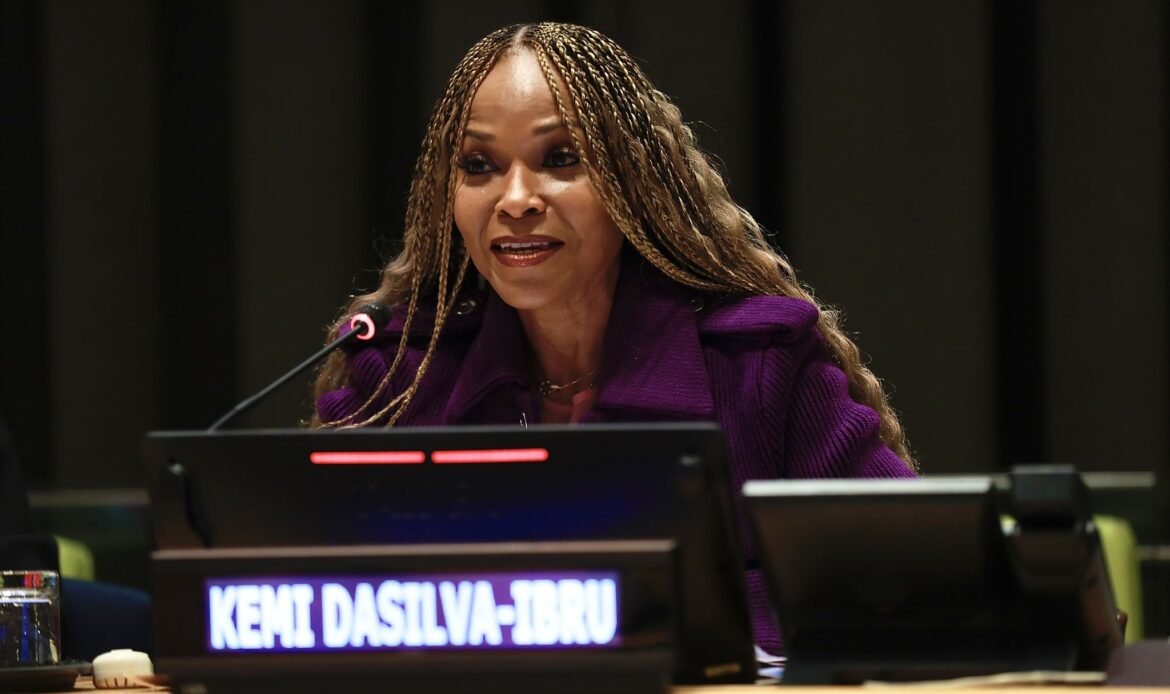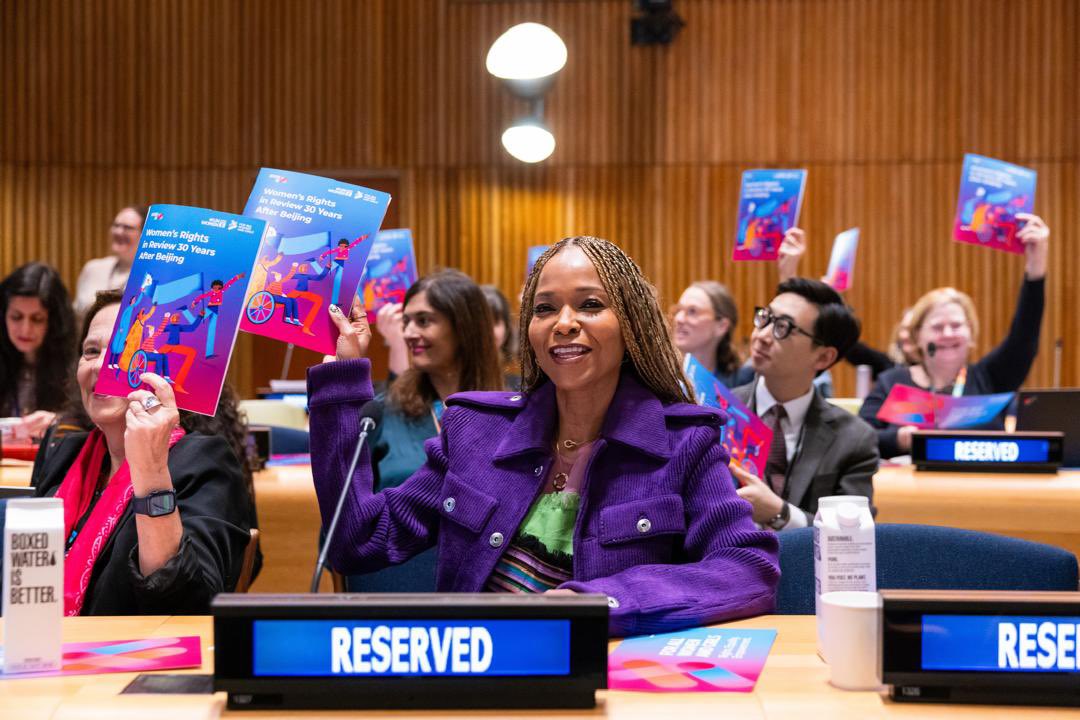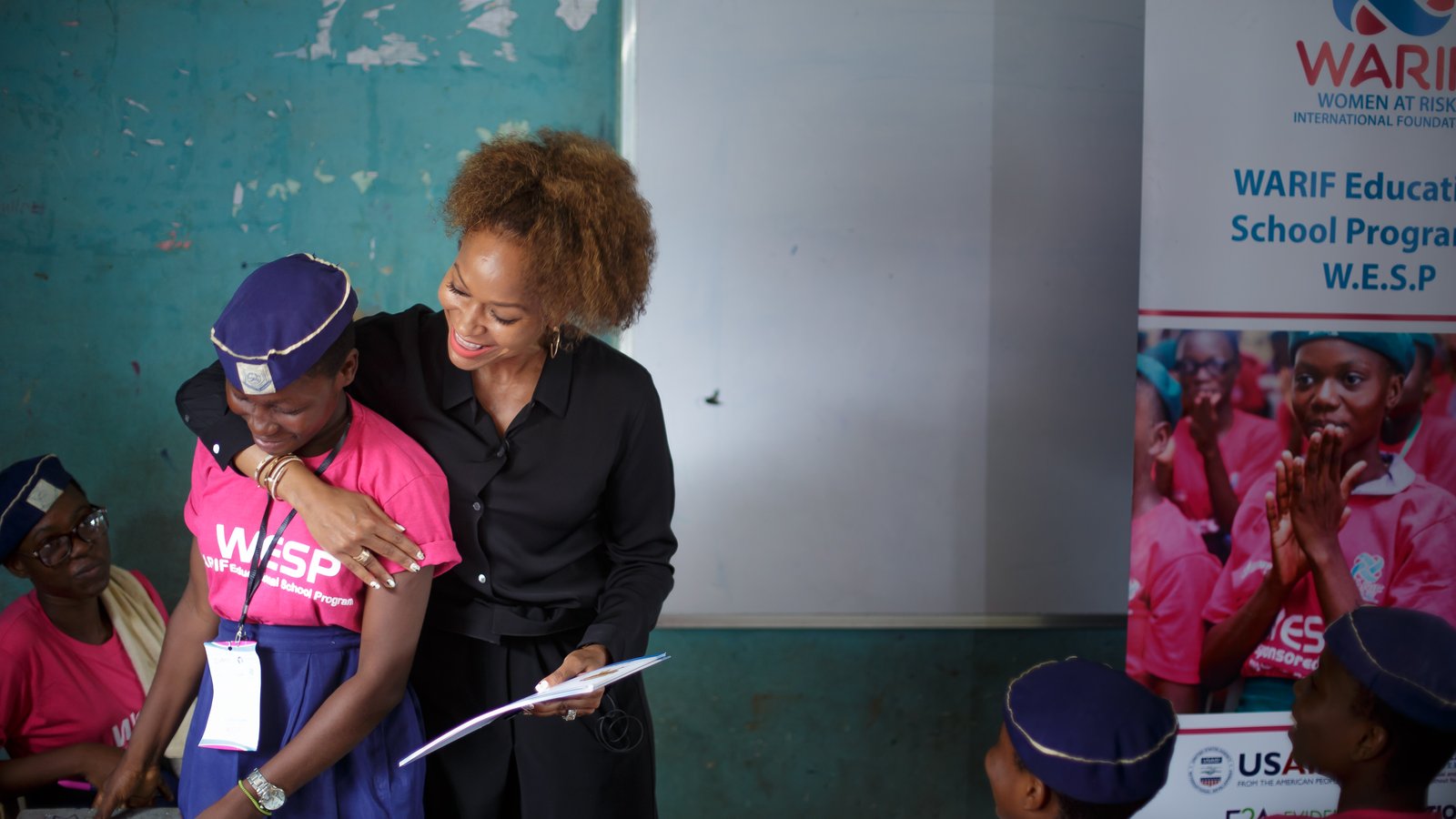
Dr. Anita Kemi DaSilva-Ibru is more than a physician—she is a force for change. For over three decades, she has worked as an obstetrician-gynecologist and public health physician, treating and advocating for women’s health. But in Nigeria, where 1 in 4 girls experience sexual violence before the age of 18, she knew medical care alone wasn’t enough.
She saw young survivors with nowhere to turn, no access to counseling, no legal protection, and no societal support. Their pain extended far beyond physical wounds—it was a systemic failure that allowed abuse to continue unchecked.
So she did more than treat the symptoms—she tackled the root cause.
In 2016, she founded the Women At Risk International Foundation (WARIF), one of Nigeria’s leading nonprofits addressing gender-based violence, sexual assault, and human trafficking. Through WARIF, she built a holistic support system—one that not only provided survivors with free medical care and counseling but also educated communities, trained law enforcement, and changed public perceptions about gender violence.
Today, thousands of women and girls have been saved by her work, and her advocacy has gained global recognition. But for Dr. DaSilva-Ibru, this is just the beginning.
Her goal? A world where no woman or girl has to live in fear.
Early Life and Medical Career: Building a Foundation for Change

Dr. Anita Kemi DaSilva-Ibru’s journey into medicine, advocacy, and activism was shaped by both her academic excellence and deep empathy for others. Born and raised in Nigeria, she pursued her passion for medicine at the University of Lagos, where she earned her medical degree. But she didn’t stop there—her commitment to women’s health and public service led her to further her education internationally.
She completed her postgraduate training in obstetrics and gynecology at Howard University in Washington, D.C., where she honed her maternal and reproductive health skills. Recognizing the urgent need for public health interventions in women’s healthcare, she went on to earn a Master’s in Public Health from the Bloomberg School of Public Health at Johns Hopkins University.
Her medical career has spanned three decades and three continents, giving her a global perspective on women’s healthcare challenges. But it wasn’t until she returned to Nigeria that she encountered the heartbreaking reality of gender-based violence up close. As a specialist healthcare provider, she met countless young girls and women who had been sexually abused—yet had nowhere to go for help. Many suffered in silence, forced to hide their trauma due to stigma, shame, or lack of resources.
For Dr. Anita Kemi DaSilva-Ibru, this was a turning point. She realized that medical treatment alone wasn’t enough—there needed to be a system in place to protect, support, and empower survivors. And so, the idea for WARIF was born.
Read: Leading the Charge: 16 Women Turning Advocacy into Action
The Birth of WARIF: A Lifeline for Survivors

When Dr. Anita Kemi DaSilva-Ibru returned to Nigeria, she was confronted with a harsh reality—sexual violence against women and girls was not only widespread but also deeply normalized. She met young survivors who had been assaulted but had nowhere to turn. Many were silenced by stigma, others were denied justice, and far too many were left without medical care or psychological support.
She knew that if real change was to happen, healthcare, education, law enforcement, and community engagement had to work together. So, in 2016, she founded the Women At Risk International Foundation (WARIF)—a safe haven and advocacy movement designed to address gender-based violence, sexual assault, and human trafficking in Nigeria.
WARIF operates on a three-pillar approach, focusing on:
- Health – Free post-incident medical care, forensic examinations, and counseling at the WARIF Rape Crisis Centre.
- Education – Programs in schools and universities that teach girls about their rights and train boys to become allies in the fight against gender violence.
- Community – Training for law enforcement, healthcare providers, and religious leaders to create a survivor-centered approach to justice and protection.
Since its founding, WARIF has reached thousands of survivors, offering medical and emotional healing, legal guidance, and empowerment. But Dr. DaSilva-Ibru knew that tackling gender-based violence meant fighting not just individual cases but systemic injustice—and when the world went into lockdown during the COVID-19 pandemic, the crisis only deepened.
Fighting the ‘Shadow Pandemic’: Gender-Based Violence During COVID-19

When the world shut down due to COVID-19, another crisis was unfolding behind closed doors—a surge in domestic and sexual violence. As families were confined to their homes, abusers gained more control, and victims had fewer escape routes.
Dr. Anita Kemi DaSilva-Ibru saw the warning signs early. As lockdowns were enforced, reports of gender-based violence skyrocketed globally, and Nigeria was no exception. Survivors who once had access to hospitals, crisis centers, and support networks were now trapped with their abusers, cut off from lifesaving resources.
She called this the “Shadow Pandemic,” a crisis as urgent as the virus. Rather than watch in silence, she acted fast. WARIF launched a series of emergency response programs to reach women and girls in distress
Her efforts saved lives—and caught the world’s attention. In 2020, Dr. DaSilva-Ibru delivered a powerful TED Talk, exposing the scale of the Shadow Pandemic and calling for urgent global action. For her groundbreaking response, she was recognized as a CNN COVID Hero, and WARIF became an international model for crisis intervention during pandemics.
Even after lockdowns lifted, the lessons learned during this period shaped new, long-term strategies for WARIF—because gender-based violence doesn’t disappear when the headlines fade.
Read: Dr Bennet Omalu: The Doctor Who Challenged a Giant
Global Recognition: A Voice for Women Everywhere

Dr. Anita Kemi DaSilva-Ibru’s unwavering commitment to protecting women and girls from violence has not gone unnoticed. Her work with WARIF has positioned her as a leading voice in gender advocacy, earning her global recognition and prestigious awards.
In 2024, she was named to the Forbes 50 Over 50 (EMEA) List, a recognition of women who are shaping industries and driving meaningful change. This honor placed her alongside some of the world’s most influential leaders, activists, and policymakers.
Her advocacy has also been acknowledged through numerous other awards, including:
- Gold Award for Thought Leader of the Year (2023)
- Silver Award for Women Changing the World (2024)
- CNN COVID Hero & Newsmaker
- Award of Excellence from Nigeria’s National Council of Women’s Affairs
Beyond awards, she has become a key policy influencer, serving as West and Central Africa Representative on the UN ACT Program Global Steering Committee on Ending Violence Against Women. But for Dr. DaSilva-Ibru, recognition is not the goal—the impact is. She continues to use her platform to push for stronger policies, more survivor-centered healthcare services, and deeper community engagement to end gender-based violence once and for all.
Her influence is felt not just in Nigeria but globally—as she shapes the future of advocacy, medical intervention, and policy reform for women’s rights. But her work doesn’t stop there. She knows that to truly eliminate gender-based violence, there must be a long-term, systemic change—and she is leading the way.
Dr. Anita Kemi DaSilva-Ibru’s work is a powerful reminder that ending gender-based violence requires more than awareness—it requires action. Through WARIF, advocacy, and policymaking, she has created real change—but the fight is far from over. Every day, women and girls still face violence, stigma, and injustice, and systems must continue to evolve to protect them.
The responsibility is not just hers—it belongs to all of us.
